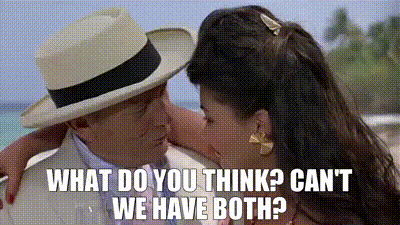The Road Less Traveled by M. Scott Peck
I encourage everyone to read a book by a psychiatrist as it is probably the closest thing you can get to being on the couch without actually doing it. I do not know if it exists as a genre — it seems like it is mostly self-help books, one-hit wonders, and shrinks who thought writing books was easier and far more lucrative than working hard for patients. The ones I have read are not memorable because they are poorly written; these men and women are definitely smart and educated but compelling writing is usually not their forte. The categories and conclusions having to do with all humankind can be hard to take and eventually turn into editorials; why not just read the science. But again, it is sprinkled-with if not backed-up by real life. An incentive to finish the whole book is to weed out the biases by the author.
In atypical internet fashion I have tried to avoid preconceptions and reviews. About all I know is that it took years and was not easy to get published. I also knew–OK, I cheated–that the parts on love and religion were likely to be difficult to take. It was a major hit in the late ’70s and early ’80s and it has held on a bit, meaning it is still around but not as a bestseller or psychology staple anymore. And I knew that it is about narcissism.
[This blog has never been about my personal family stories and, while that may occur someday, it is not my intention in reviewing the book. I had the book on my shelf and it was a little worn and it had some very important notes in it. My grandfather, my mother’s father, had either recommended it to me or had given it to me. I recall carrying it around for a bit but having a hard time really getting into it. I do not know when I acquired the book, but the notes are from about 15 years after I graduated with a degree in psychology.]
Still fighting through it but…
I do not think I would recommend this book much. And here is why:
That is from the movie Trading Places. For me the book changed when Peck began telling the story of spending some quality time with his 14 year-old daughter. She had been asking him to play chess with him for weeks and one night they scheduled a match sometime before 9 PM. Around ten til 9 the girl started becoming anxious: she had to go to bed at 9 and get up at 6 and has a very busy day tomorrow. She suggested they quicken their moves and finish the game. Dr. Peck suggested (more like insisted) they finish–chess is a game that requires strategy, takes time for moves, I want to win, and your bedtime can wait a few minutes today. The girl started became more and more upset. Around 9 she ran off crying to bed.
Dr. Peck seemed like a pretty crummy and distant father. But he analyzed it and determined that his goal to win the game was too intense. He should have just played and enjoyed it more (I don’t think he mentioned–enjoy the game and the company of his daughter).
Peck writes in a manner that is like brainwashing. Earlier I mention that it is great to hear from psychologists, and he uses that credibility and those sources to hook you. It gives his views credibility. But his views do not have much (scientific, psychological) credibility and perhaps they come too much from his patients, which are a small subset of the population, and he says repeatedly “those who come to see a psychiatrist,” as if that is all he knows (the proverbial most-whacked among us). He also says over and over again you have to work at it, be miserable, change your life–bizarre: first he says you should pay attention to reality, even evolution, but then you should throw it all away entirely–and basically prescribe to this ritual.
At the end of the first section, when the ritual began to turn to religion, I had had enough. I do not believe in the concept that you have to break someone down entirely, wipe their slate clean, and brainwash them to learn.
I did not know that discipline is short for disciple.
It is like listening to Warren Jeffs on cassette tape. I went back and tried to find it but couldn’t. The definition of religion is a belief in reincarnation.
That’s where the loss was permanent.
And he is just beginning to write about love. First he says you cannot define it. Then he does it anyway. Finally he says my definition includes a form a logic that is often criticized. Final as in that is the end of my reading of that merciless section and the book.
—
People do read it and are still doing it today. It is so easy to look at reviews. Some people love it (swear by it); others say one star.
“Life is difficult. This is a great truth, one of the greatest truths. It is a great truth because once we truly see this truth, we transcend it. Once we truly know that life is difficult–once we truly understand and accept it–then life is no longer difficult. Because once it is accepted, the fact that life is difficult no longer matters.”
It tells you that many people want to learn, improve, or address problems. Anyone who is going to fight through The Road Less Travelled really wants to do those things.
